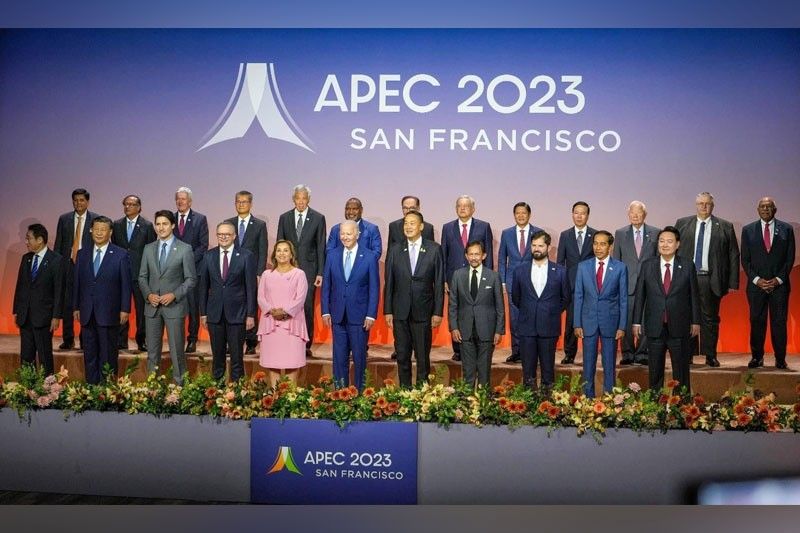President Marcos to APEC: Address climate injustice

SAN FRANCISCO — President Marcos has called for stronger economic and technical cooperation on climate action as he urged fellow leaders of Asia-Pacific Economic Cooperation (APEC) economies to recognize the “historical climate injustice” suffered by countries least responsible for the problem.
Speaking during the APEC leaders’ informal dialogue here yesterday, Marcos said climate issues have become “more acute,” demanding “strong, immediate and coordinated action.”
He said APEC offers a unique opportunity to explore and incubate multifaceted and cross-cutting policy options and best practices for transition to a clean, renewable and sustainable economy.
“APEC’s work must reflect a historical climate injustice for those that are least responsible suffer the most,” the President said.
“APEC can contribute to a trade and investment environment that assists economies in cutting emissions, facilitating climate financing, and supporting technology transfer, especially for the most vulnerable economies,” he said. “Technology diffusion ensures that green energy solutions are accessible and affordable to all. In this regard, I call for stronger economic and technical cooperation.”
Regarded as one of the countries most vulnerable to climate change, the Philippines is visited by about 20 typhoons every year. The country has committed to cut carbon emissions by 70 percent by 2030 even if it is not a major source of greenhouse gases.
Citing APEC’s voluntary and consensus principles and its equal partnership and shared responsibility, Marcos said mitigation strategies that incorporate supportive supply-side and demand-side measures may result in better outcomes rather than relying only on methods like carbon taxes and phasing out inefficient fossil fuel subsidies.
“On the supply side, deeper collaboration in advancing and adopting affordable and accessible renewable energy and low-carbon technologies can steer us away from fossil fuel reliance. Using science, technology, and innovation and cooperation in research will lower costs of development, enhance the quality of technologies, and expedite climate mitigation solutions,” he said.
“On the demand side, the promotion of energy efficiency and conservation initiatives can reduce the demand for fossil fuels. Embracing these supportive approaches contributes to an equitable and inclusive transition,” he added.
Marcos said a just energy transition entails not only ensuring that affected and underserved segments such as small businesses and rural and geographically disadvantaged communities continue to have access to affordable energy. Such a goal should be supported by quality jobs and workforce development, human resource upskilling, infrastructure connectivity and blended finance packages, he added.
According to Marcos, the key to addressing the high cost of green technology is cooperation in its development, liberalization of the sector, and facilitation of green trade and investment. He went on to mention the Philippines’ efforts to liberalize ownership policies for solar, wind and geothermal sectors; reduce tariff rates on environmental goods, promote and increase the use of renewables in its energy mix, and diversify energy sources to include clean and indigenous sources.
- Latest
- Trending


























